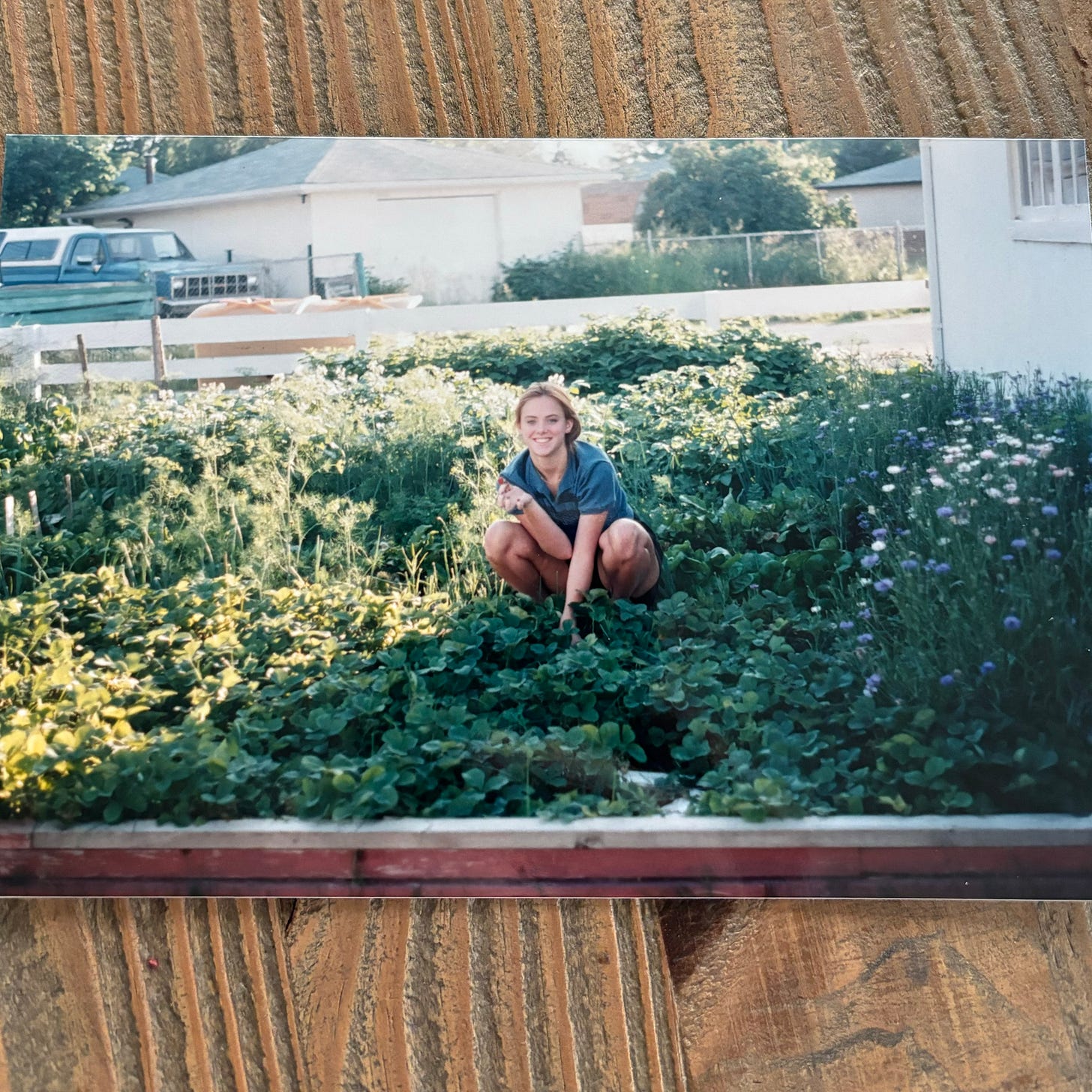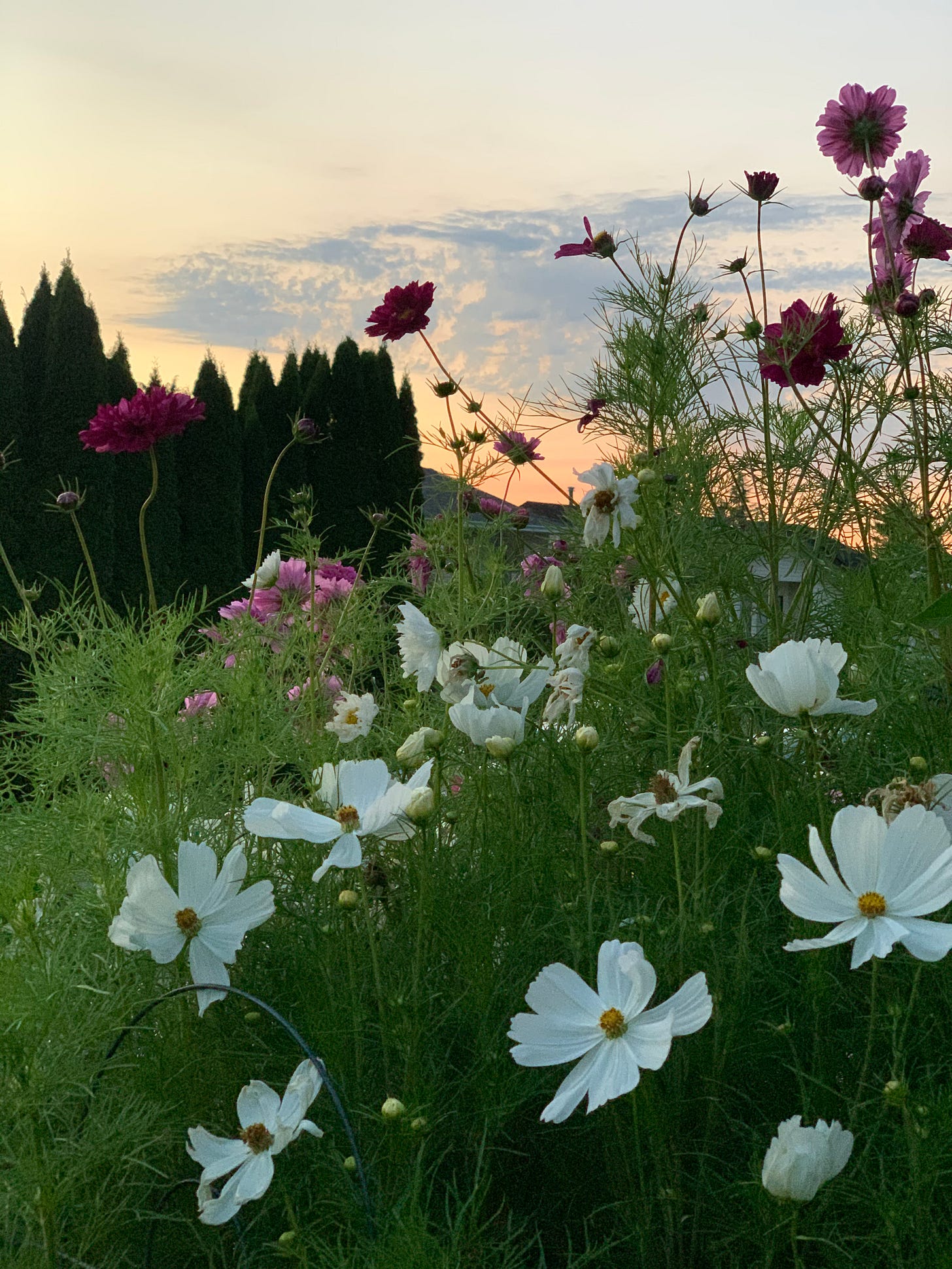Before we begin: Did you get a chance to weigh in on the Field Notes survey? Almost 1500 of you have taken time to share your thoughts - thank you so much! It’s still open for input for a bit longer, if you’d like to chime in.
Hi friends,
A few weeks ago, I resolved to take the weekend off from my computer to do a bit of cleaning and tidying up around the house, go for a long walk or two, watch the Stanley Cup Playoff finals,1 and finish a novel that was due back at the library.2 My big plans (lol) were the result of a quieter weekend than usual: my husband and our two youngest girls were away at an extended family event, so it was just the older two at home. And between school, work, friends, and beau, our eldest daughter is at that stage where she’s absent far more than present at home so really it was just my son here. Joe is nearly sixteen and shares my taste for quieter days.
I had the bright idea to plant a few flowers in our backyard that weekend.3 We have four humble built-in planters on the back deck for flowers and herbs, so I also resolved to take care of this small project over the weekend while Brian was out of town.
So on the Friday evening after supper, Joe and I went to the local garden centre to impulse-buy a bunch of bedding plants. He pushed the cart, I kept picking up varieties of pansies, adding more sweet peas, contemplating lilacs, ruminating on cosmos.
Eventually, I realized that I was unconsciously channelling my grandmothers in my choices. Whatever they once loved, I apparently wanted to plant.
Nell was a Saskatchewan farm kid, transplanted to the city in the post-World War II migration, who never lost her touch for flowers and veg. She had a flourishing urban homestead that would have killed on Instagram, if only she could have learned to suffer fools gladly (an unlikely scenario). As a kid, I grew up in her garden, gnawing on crisp carrots I had just yanked from the cool rich dirt to rinse off under the hose. My small fingers were always stained from the theft of raspberries and strawberries. We kept bouquets of her sweet peas in jam jars on the kitchen table. The cousins all tried to eat crabapples without making a face, failing hilariously. Her basement laundry room had a shelf of rinsed out yoghurt containers, all waiting to start the seedlings again, every year.

My other granny wasn’t much of a gardener. (To be honest, she would have loved that meme that asks, “What is your dream job?” wherein the response is, “Darling, I do not dream of labour.” No, Lorna did not dream of labour.) But she did like pansies quite a lot and it became her icon in the family. We all knew she loved the gold and purple statement of the humble flower and so we all keep planting them in our gardens. When Lorna died, one of my cousins got a tattoo of a pansy in her honour.
I turned to Joe in the garden centre, arms full of those old-fashioned flowers, and said, “This makes me miss my grandmothers.”
I first learned of the Jewish phrase, “May their memory be a blessing”4 in my adulthood. I thought it was such a beautiful phrase, much more tender and communal than the familiar “rest in peace” that I knew well in my own culture. When the pandemic swept across the globe, I noticed that the phrase had become more commonly wide-spread throughout many communities as a way of expressing sorrow together. I’ve adopted it myself as words of comfort to friends who have experienced loss.
And yet…when someone we love dies, it can take a long while to get to the blessing part of a memory, can’t it? When death first wallops us into our new citizenship amongst the grieving, it is impossible to remember without pain. Memory is devastating.
In the aftermath of loss, we can avoid photographs that remind us of better times. We can skip songs that shuffle onto our playlists because if we listen to them, we’ll bawl. We stop wearing certain clothes, we drive the long way around to avoid certain places, we change how we eat. The sight of their handwriting, a song they loved, the particular birdsong they always remarked upon when they heard it. Our memories feel like an unexploded bomb, ready to detonate us back into the white hot centre of grief all over again.




